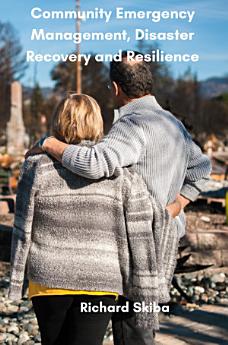Community Emergency Management, Disaster Recovery and Resilience
About this ebook
Risk Assessment and Hazard Analysis are crucial components discussed in the book, focusing on identifying risk factors and assessing vulnerabilities within communities. Community-Based Disaster Preparedness is emphasized, stressing the need for community engagement and capacity-building to enhance resilience. The book also delves into the development of Emergency Response Plans and Procedures, stressing the importance of coordination among stakeholders for effective response efforts.
Disaster Response strategies are explored, drawing insights from both successful and unsuccessful response endeavours through relevant case studies. The recovery phase is examined in detail, discussing short-term and long-term recovery processes, along with economic, infrastructural, and social dimensions of recovery. Sustainable Development and Disaster Mitigation are underscored, emphasizing the integration of disaster risk reduction with sustainable development goals.
Technology and Innovation play a significant role in disaster management, with a focus on leveraging technology for risk assessment, response, and recovery efforts. Legal and Policy Frameworks are also addressed, providing insights into the legal basis for emergency management and policy development. Furthermore, the book delves into the Psychological Aspects of Disasters, addressing mental health impacts and recovery strategies for affected individuals.
Lastly, Future Trends and Challenges in Disaster Management are explored, considering emerging threats, global climate change impacts, and evolving practices in emergency management to better anticipate and address future challenges effectively. Overall, the book offers valuable insights and practical guidance for navigating the complexities of disaster management, promoting resilience, and fostering sustainable development in communities.







